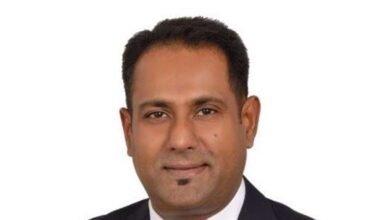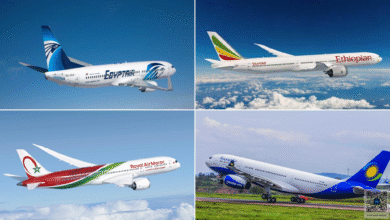Senegal: When the Terrorist Threat Terrorizes the Economy

Senegal is not spared by the terrorist threat and that is no secret. The recent diffusion of a joint message from the French and American diplomacy, advising against visiting some public markets of Dakar and some touristic sites on the Petite Cote has eventually slowed down the economic activity of this West African country. ANA met some actors of Senegal’s economic sector.
Sunday, May 1, 2016, we are at the Tilene Market in Dakar, one of the sites that should be avoided. Usually crowded, this market whose vendors are mostly from Guinea is visibly quieter. The alert given by the French and American authorities and repeated by the Senegal is generally observed. The reason is simple: ‘People are scared now to do their shopping here in Tilene. Those who can’t avoid it, are doing everything they can to speed up the process when they come here. They buy the basics but everything else they can obtain it elsewhere, where it is safer for them,’ says Mamadou Ba, a vendor in his forties who sells basic foodstuffs such as rice, oil, sugar, milk, onions and potatoes. ‘Before this alert, my daily earnings could easily top XOF 500,000, but currently it is difficult to wrap up the day with XOF 300,000,’ he says.
‘We don’t see customers like before’
At the Soumbédioune Market, a similar situation: people don’t buy fish like before. This fish hot spot next to the craft village of the same locality, used to be packed with customers. After sunset, residents of Dakar, but mostly of neighbourhoods with diplomatic missions such as Medina, Castors, the HLM, the Plateau or Fann, would swarm this market where seafood abounded. On top of fish, one could find crayfish, shrimp or lobster. It was a favourite secret spot for many expats who, for the most part, love fresh seafood. ‘We don’t see customers like before’, says Sokhna Fall. The thirty-year-old woman, her loincloth neatly attached at her waist, stands behind her stall where are laying fresh Thiof, Capitaine and other varieties of fish. ‘I am desperate right now. All my potential buyers, mostly Asians, they don’t come any more. The only few who show up are in and out in a flash, just long enough to buy essentials. Before, they would take their time, look at fish, choose one and have it prepared. They were buying a good amount of fish, but for some time now, nothing has been working. Sometimes I consider changing location or even leave this job and do something else,’ says the young woman who attributes this drop in business to the terrorist threat, but mostly to the security measures implemented on the West Corniche road, where several hotels are located.
And indeed, not far from the Soumbedioune Beach stand the Terrou-Bi and Radisson Blu Hotels, among others. In this area, passersby are not welcome. To access it, one must show credentials and metal detectors are everywhere. The surveillance is visible and security agents, supported by police forces and National Gendarmerie, armed with guns, apply zero tolerance. Vehicles are scrutinized and people, screened carefully. Nothing slips. And this situation worries tourists to the point that ‘some of them decide not to even take the risk of coming. However, others appreciate this high security and feel reassured. But the fact that access to our complex has now been restricted for some time, and the systematic searches remind visitors the imminence of a terrorist attack. And necessarily, it affects the sector. Revenues are going to suffer, that’s for sure,’ explains a restaurant employee of the sector.
‘What is the safest place in this world?’
Eighty kilometres from Dakar, in Saly Portudal, a well-known touristic spot in Senegal, in the region of Thies, department of Mbour, the threat is pressing but it is less noticeable in those streets filled with Westerners. ‘What can I do?’, asks a sexagenarian Frenchman. ‘I have a house here in Saly where I have been living for the past five years. I am not going to abandon it and leave because there is a terrorist threat. After all, what is the safest place in this world? That’s the question. Terrorists struck in France, they struck in Belgium. Those countries are supposed to be safer than Africa and yet they were attacked, so if someone asks me if I am safe here in Senegal, I would say yes’, he declares with confidence. An understandable point of view, considering the security measures in place.
As expressed by this ranking officer from the Senegalese army who preferred to remain anonymous, ‘beyond the visible security services on the field, Senegal deployed a lot of law enforcement officers dressed as civilians and dispersed in the crowd. They are armed and ready to take action. In my opinion, anybody with bad intentions will be shot by a civilian police officer before they can act.’ This kind of confidence is not always reflected among ordinary citizens. Mamadou Diouf, an art vendor says he is practically out of work since the alert was raised. He has decided that if tourists are increasingly scarce in his shop, he will pack up his things and go back to his hometown, a village not far from the city of Touba. ‘The terrorist threat is really weighing down on business here in Saly, since the government triggered the alert. Tourists are less present in public places.
They have deserted markets and restaurants. It has a big effect on revenues. It wouldn’t be surprising to see some accommodation complexes go out of business because of a lack of clients.’
In Obama Beach, a seaside hotel complex, there are still some tourists, but a lot less than before. The reason is obvious: ‘There is a terrorist threat in effect for Senegal, but we don’t feel the impact of this on our customer base, which is diverse and varied,’ says a waitress anonymously. She adds the complex, ‘welcomes less Westerners than before. And it is normal, because the threat was announced everywhere. Naturally, some people are hesitant to stay at the beach, especially that in Abidjan, an attack was perpetrated on a beach.’ She says she, ‘prays for terrorists to never strike in Senegal, which is a Muslim brother country’.
It is clear that a terrorist threat exists in Senegal. It affects businesses and hotels even more so now that fear has spread in this West African country, previously known for its political stability, of course, but also and mostly for its security guaranteeing a healthy economy.
By Malick Diallo







